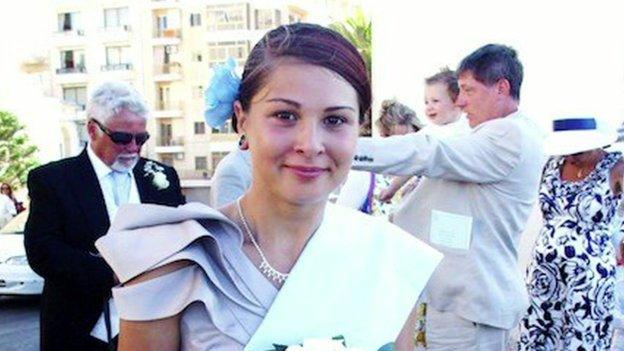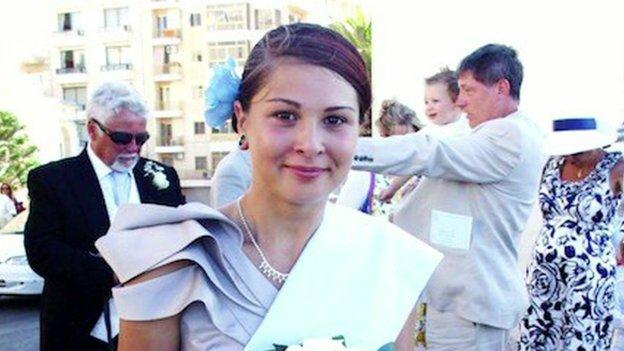Kesia Leatherbarrow: Girl's death not 'preventable', review finds
- Published

Failings outlined in the review of trouble teenager Keisa Leatherbarrow's death
A troubled teenager who took her own life after being held in a police cell was failed by agencies, a report found.
A serious case review concluded that Kesia Leatherbarrow from Chorley, Lancashire, was let down but her death was "probably not preventable".
The 17-year-old's body was found hanged in a garden on 3 December 2013, three days after she was arrested.
Tameside Safeguarding Children Board's report said errors would "probably not have stopped her" from taking her life.
The teenager had been excluded from school for possession of cannabis, had been using drugs and had self-harmed and received treatment at a specialist mental health unit, the review found.
The official report examined the contact Kesia had had with Greater Manchester Police and Lancashire Youth Offending Service and identified a series of failings.
It found her transfer to Tameside was poorly handled.
'Woeful failings'
It also highlighted a number of failures when she was held at Ashton-under-Lyne police station, including the fact that specialist officers who deal with vulnerable children were not consulted.
When she was released from custody she threatened to jump from a bridge - but that information was not shared with other professionals.
The review said she had stayed at a mental health facility in the summer of 2013, but no mental illness was diagnosed.
But it concluded: "The review cannot say with any degree of confidence that, if any alternative approaches had been taken, it would have prevented the tragic death."
The review also found her mother and stepfather were "very distressed" and "felt angry and let down by services generally in trying to respond to an escalating level of emotional distress and conflict over several months".
Furthermore, Kesia was "never identified" as a child in need who required protection or as having additional educational or social needs. The overall pattern of intervention was "too much focus on the immediate signs and symptoms", the report found.
The inability of all services "to see her as a vulnerable child, rather than a troubled or troublesome young adult was a common and recurring theme".
'Collective apathy'
David Niven, chair of Tameside Safeguarding Children Board, said: "She essentially had been treated more like an adult than a child.
"The Police and Criminal Evidence regulations have now been altered, partly as a result of this case."
He added: "There's absolutely no question that anybody under 18 has to be treated as a child."
Kesia's parents successfully campaigned for a change in the law, meaning arrested 17-year-olds who are held overnight now have the same rights to be transferred to local authority accommodation as younger children.
Greater Manchester Police said the Independent Police Complaints Commission investigated how officers dealt with Kesia and were awaiting its findings.
At the time of the inquest, an IPCC spokesman said an investigation into her detention found six custody sergeants, a civilian custody officer and four other police officers showed "a collective apathy towards providing care for detainees".
Assistant Chief Constable Garry Shewan said: "First and foremost, our thoughts are with the family of Kesia Leatherbarrow, who have understandably been left devastated by her tragic death and I have personally passed on my condolences.
"We accept as an organisation there were shortcomings in the care that we provided to Kesia and following her death we introduced new care processes for those in police custody for whom we have concerns of self-harm in the hope such a tragedy will never occur again."
Lancashire County Councillor Matthew Tomlinson said: "Our sympathies remain with her family.
"We have already learned from these events, and have improved and clarified how we share information as a result."
- Published7 February 2015

- Published5 January 2015
